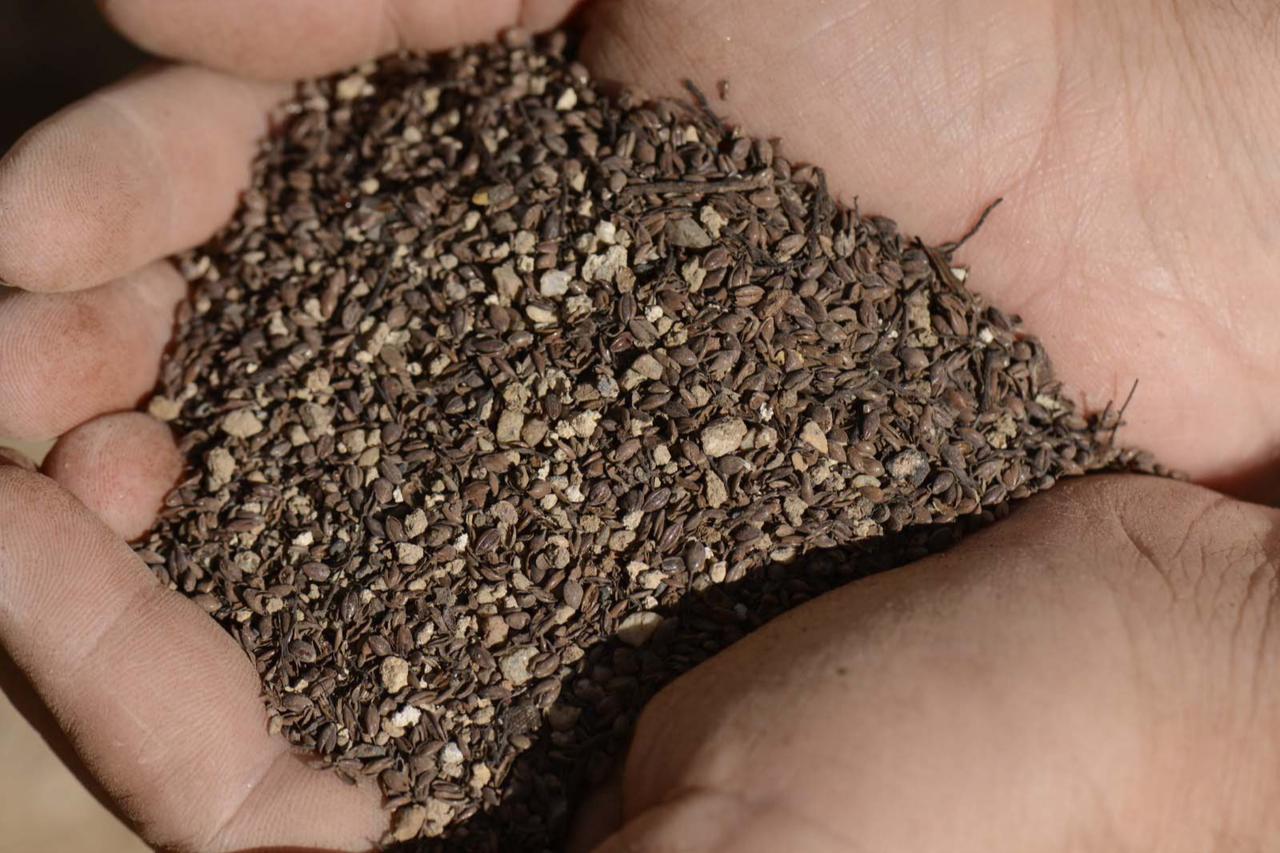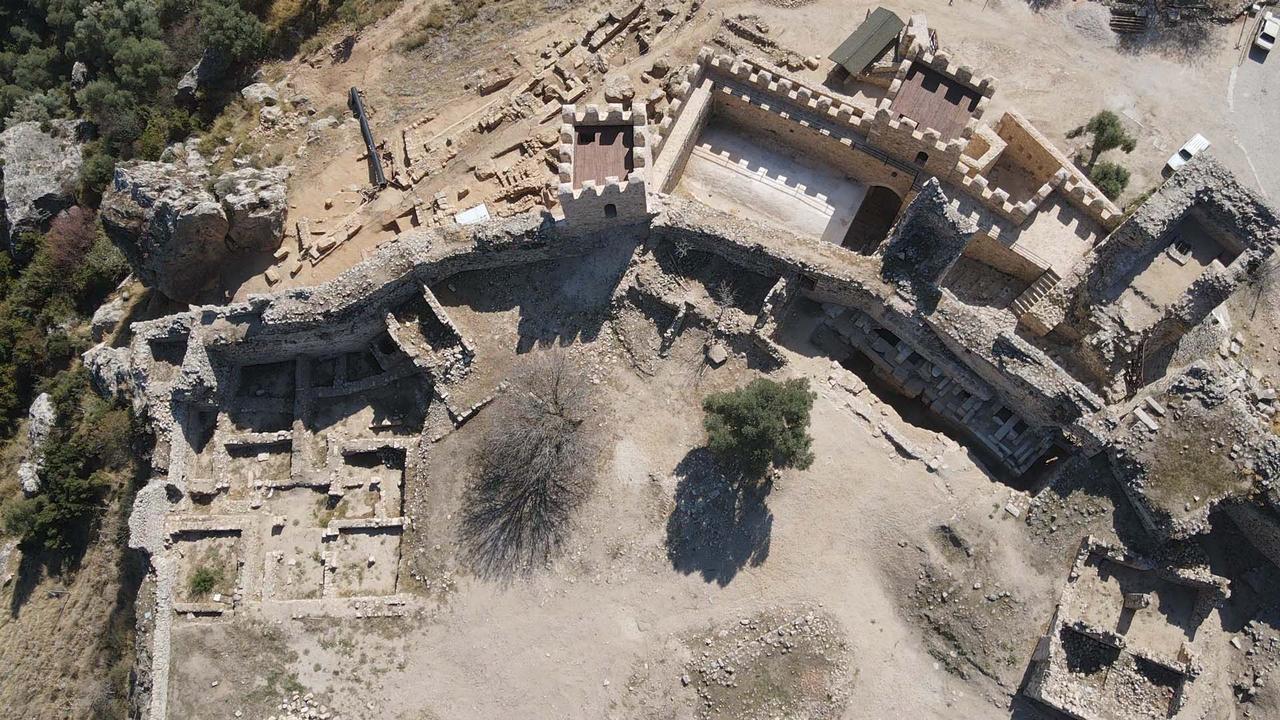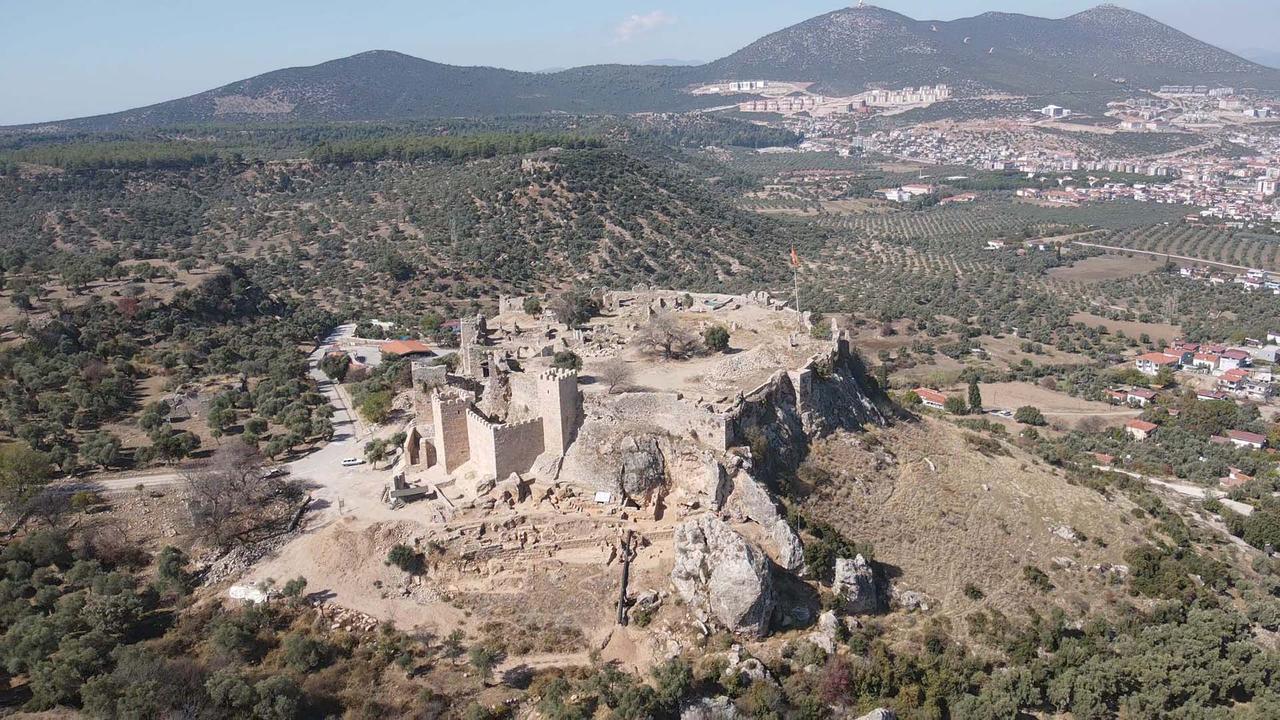
Archaeologists at the ancient city of Becin in Mugla’s Milas district have uncovered a cache of millet seeds thought to date back 600–700 years.
The team, led by Professor Kadir Pektas, reported that the grains were found inside what appeared to have been small sacks, preserved with their husks, and recovered in large numbers.
Becin, once the capital of the Mentesheogullari Beylik (a medieval Anatolian principality), is on UNESCO’s World Heritage Tentative List and has year-round excavations authorized by the Ministry of Culture and Tourism.

Pektas said ongoing work focuses on the Inner Castle (a fortified acropolis) and its surroundings.
On the east slope, researchers identified a small room that served as a refuse area from the Archaic to Hellenistic periods, bringing to light finds that help trace Milas’s earliest past, including Archaic ceramics and gaming dice, all now under documentation.
Excavations in and around a Menteshe-period bath have also revealed cremation graves (burials following the burning of remains) and structural links to nearby buildings, broadening the picture of the settlement’s medieval urban fabric.
The millet seeds were recovered inside Bastion No. 3 of the Inner Castle at a depth of roughly five meters.
Pektas noted that thousands of grains reached the team intact, often alongside glazed ware (ceramics with a vitreous coating).
Based on the context, he added that the find likely dates to the Menteshe era and the early Ottoman years, pointing to the 14th–15th centuries.
“For the first time in archaeological excavations in Türkiye, we have encountered such a dense concentration of millet seeds,” he said.

Specialists have begun laboratory work, including age determination and genetic analysis, to refine dating and learn more about the seeds.
The team believes the grains were stored for provisioning and expects additional seed samples in future seasons.
Pektas recalled that millet is rarely recovered as seed in excavations in Türkiye and suggested that this discovery stands out for its abundance.